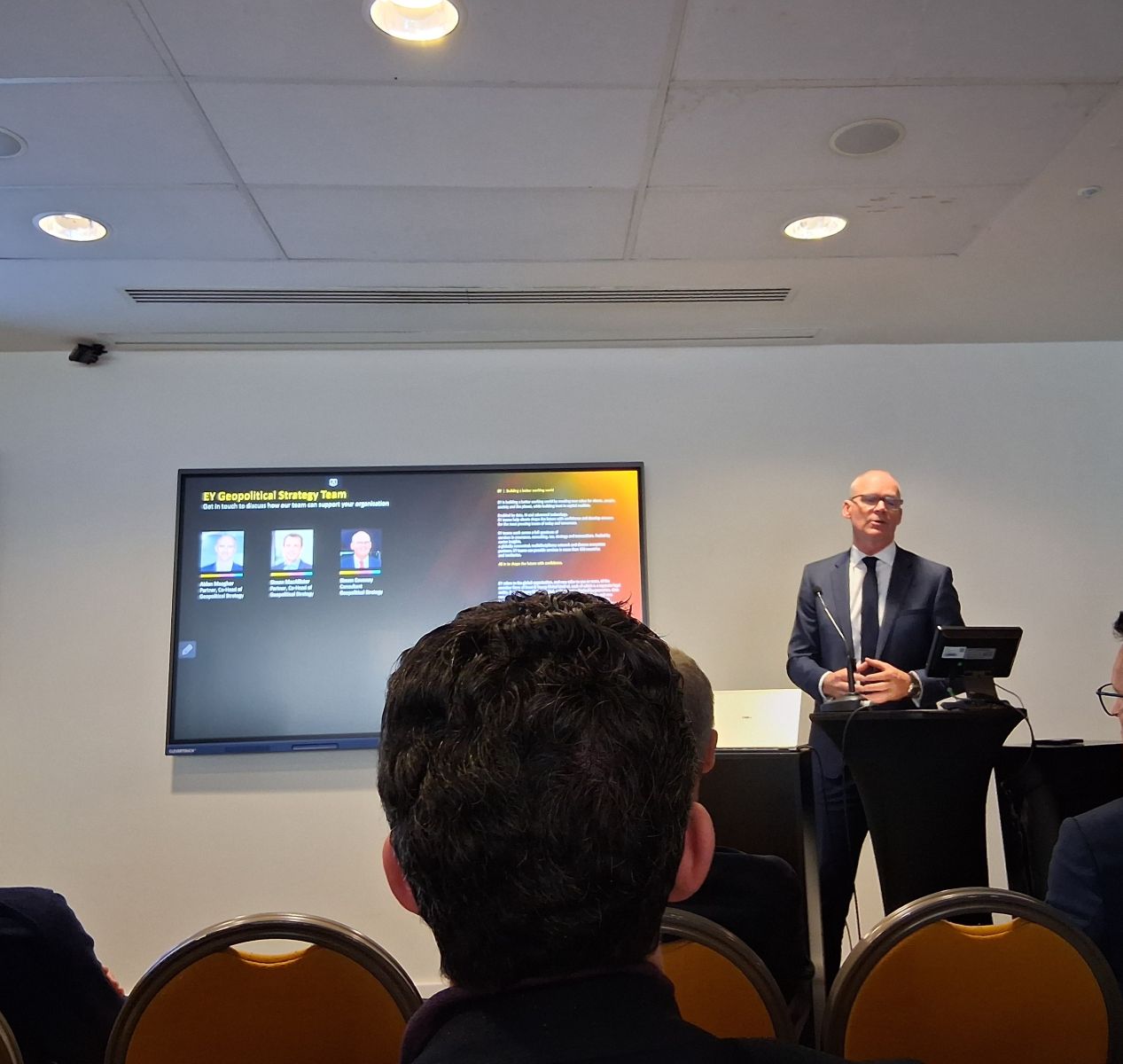Strategy
Former Irish Deputy PM Warns On US Economic Strategy

Simon Coveney, former Irish Deputy Prime Minister (Tánaiste), explained that geopolitical risk has become a central factor in decision-making for individuals, businesses, and governments. He argued that the US strategy to increase dominance is a flawed one.
Simon Coveney (pictured), consultant at EY Ireland's Geopolitical Risk Unit, highlighted at the Mediolanum International Funds (MIFL) media event in Dublin last week that the US has a clear template for its global trade and foreign policies. US President Donald Trump isn’t operating a semi-chaotic administration, as some commentators think, Coveney said at the Dublin event attended by WealthBriefing.
Coveney referred to the “Mar-A-Lago Accords,” drawn up before Trump came into power, which outline a four-pillar approach to increase US dominance.
This includes the aggressive use of import tariffs to help reduce the US budget deficit, rather than raise taxes, and to reduce its trade deficit, he said. Second, it includes using military power to gain a trade advantage and help the US get better trade deals. A third measure is the deliberate devaluation of the dollar to make its manufacturing exports more competitive, as it has been overvalued, Coveney continued. Finally, it involves deliberately undermining the US Federal Reserve’s independence so that the White House has more power.
While the strategy aims to reinforce US dominance, Coveney believes it is flawed and could erode global trust, destabilize long-standing alliances and impact dollar-backed investments. He highlighted China’s dominance in manufacturing, noting how countries are already diversifying away from the US.
His views were shared by Furio Pietribiasi, CEO of Mediolanum International Funds, who told WealthBriefing that he has seen a shift from the US to European equities while emerging markets continue to be a growth area. “Although tensions between the US and China will continue, China is a big economy and it will continue to grow. We have started to see new flows into the Chinese market and it’s good to stay invested there,” he said. He highlighted China’s strong role in the renewable energy sector. While China still relies on fossil fuels, it produces more than 80 per cent of all solar photovoltaic panels, half of the world’s leading electric vehicles and a third of its wind power. "Their clean energy output will be important. If we can pollute less and produce more clean energy, it can only be good," Pietribiasi added.
The Irish asset management arm of the Mediolanum Banking Group has a number of funds in emerging markets and is slightly underweight in US equities, slightly overweight in emerging market and European equities. MIFL is also keen on Japanese equities and has been increasing its exposure there. On fixed income, Daniel Loughney, head of fixed income at MIFL, said they are overweight in UK gilts and emerging market debt and have reduced their overweight position in US Treasuries.
A number of wealth managers have been reducing their exposure to US equities and into European and emerging market ones recently, as a result of the tariffs and increasing market uncertainty.
Philippe D’Orgeval, deputy group chief investment officer at Paris-based Amundi, told this news service, for instance, that they are slightly overweight in equities toward Europe and emerging markets, at the expense of the US. “We see a big gap between US and Europe valuations, with Europe valuations being more attractive. We are also interested in emerging markets due to the growth opportunities there.”
Emerging markets have outperformed their developed peers so far this year and asset managers like Franklin Templeton and Paris-based Carmignac, reckon that there is further room for them to run. These countries have benefited from forces such as the weaker US dollar because debt that is denominated in the US currency becomes easier to service; and local currencies can strengthen, boosting investment returns.
Coveney also emphasized that geopolitical risk has become a central factor in decision-making for individuals, businesses, and governments, especially in a rapidly-changing global environment.
He urged fund managers and financial professionals to incorporate geopolitical risk into their decision-making. He outlined four key categories of risk: geopolitical tensions, trade and investment policy shifts, technological disruption, and societal pressures. These risks are no longer abstract – they directly affect investment outcomes, regulatory environments, and consumer behavior. “The EU’s response must include diversification of trade partnerships and a renewed focus on resilience and innovation. We must embrace calculated risk, backed by data and strategic thinking, to ensure strong returns in an uncertain world,” he said.